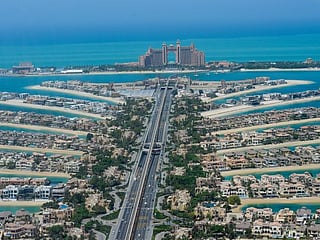UAE's medical tourism has the network, now it needs new quality benchmarks
Payoffs from investing more on quality healthcare upgrades will be substantial

After the global financial crisis in 2008, many countries began to encourage medical tourism to stimulate their economies.
In addition, since the 1997 financial crisis, Asian destinations sought to develop the medical tourism industry to bring in foreign exchange. Malaysia, Thailand, and India have implemented policies to attract foreign patients and have established themselves as world-class medical hubs.
Thailand’s medical tourism industry generated $340 million in 2010 and $622 million in 2013, representing an average annual growth rate of at least 20 per cent. Malaysia’s during the same period was growing at 19 per cent.
Upgrade across networks
Israel, Turkey, and the UAE have actively developed their healthcare systems to attract patients from neighboring countries and Europe. The worldwide interest in promoting medical tourism as a driver of a host country’s growth can be attributed to three factors : dollar revenue from these ourists and accompanying family members, generation of employment opportunities in healthcare and related industries, and improved access to domestic healthcare in host countries as one is subject to international standards and audit.
One of the most crucial factors that makes the Middle East an ideal medical tourism hub is its location. The UAE is a four hour flight away for one-third of the world’s population and an eight-hour flight for two-thirds. That is part of the reason why the country, and particularly Dubai, is on track to becoming a global medical tourism destination.
The UAE ranks first globally in terms of number of accredited health facilities with over 200 such hospitals, medical centres and health facilities, according to Joint Commission International (JCI) which identifies, measures, and shares best practices on patient safety with the world.
Access at a click
The Dubai Health Authority launched ‘Dubai Health Experience’ as the world’s first medical tourism portal, offering visitors comprehensive services at the click of a button. Dubai maintained its advanced position as the first Arab destination, based on the "Global Medical Tourism Index" issued by the International Health Care Research Center.
The Department of Culture and Tourism – Abu Dhabi signed a MoU with the Medical Tourism Association, an organisation that aids healthcare providers and governments in creating successful medical tourist programmes. Both entities shall promote Abu Dhabi as such a destination in markets such as Russia, China and the GCC, with focus on cardiology, oncology and executive screenings.
Concerted medical tourism development strategies could do a lot good in improving the overall picture, thereby offering compelling reasons to choose UAE as a destination of choice. A particular focus should be on developing a robust system to ensure that all prominent international medical insurance plans will be accepted in the UAE.
Create the benchmarks
Once strategies are defined, a set of medical tourism service quality indicators could be developed. This should cover all parties that have participated across industries. The whole process of customer-patient-medical tourist journey - from the booking to the follow up upon arrival of medical tourists in their home country - could be standardized.
The role of medical tourism facilitators could be clearly defined, as well as conditions under which the establishment of these companies would be possible. Close collaboration between regulatory, hospitals, clinics, hotels, tourism organizations, travel agencies, travel carriers, transportation companies, and medical and travel insurance companies is a must.
Defining special air, hotel and transportation tariffs for medical tourists could work better as well. Lastly, medical tourism in the UAE could be advertised more. And building the UAE’s reputation as a quality and medical tourism destination for everyone, including the sick and elderly who are in need of quality care.









